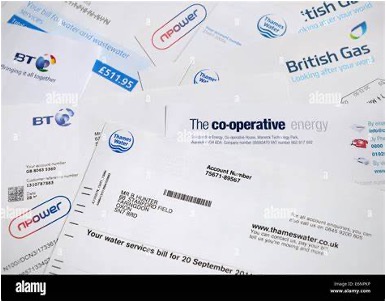-
Call Us +44160676044
-
Email Us generalenquiries@bowyerestates.co.uk
-
19 Hooker StreetNorthwich, Cheshire, CW8 1BY

Wondering how to save for a house? From saving on your bills to taking advantage of one of the government's schemes helping first-time buyers onto the property ladder, we explore the easy ways to save to buy a house.
Saving enough money to be able to own your own home can seem daunting. Living costs are rising and higher house prices make it ever tougher to get on the property ladder - across the UK house prices have increased by around 10.6 per cent over the past year according to the Office for National Statistics. But don't despair - this is not an impossible dream.
The first step to buying a house is to set some targets. What kind of property are you aiming for and where do you want to buy? What can you afford in mortgage repayments each month, and how much will this enable you to borrow (lots of online mortgage calculators will help you work that out)? How much would a deposit of 5 to 10 per cent of your target property price work out to be?
This latter figure, plus a bit extra for the costs of property purchase, is your savings target. And using the following tips, can help you work towards your goal. Saving for a house is a marathon, not a sprint - and there will be sacrifices along the way - but keep the prize in sight by being disciplined.
Paul Wilson, a personal finance expert at Cash Lady, advises: 'Set up a standing order to transfer money into a savings account each month on payday. That way the money is out of your current account and you are less likely to be tempted to dip into it.'

Making small changes to your day-to-day outgoings can really add up over time. 'For example, spending £3 a day Monday to Friday on a shop-bought sandwich amounts to £780 a year,' says Paul Wheatcroft, account director at My Local Mortgage. Make a sandwich at home each morning instead and you'll save most of that money.
Take a look at your monthly spending habits. Write down what you have coming in and what goes out of your account each month. Then identify the areas you can cut back on. Try taking coffee from home in a Thermos flask rather than buying one on your way into the office each morning. Or limit yourself to one night out a month, rather than every weekend.
'Applying for a mortgage is the ideal time to tidy up your finances,' says Heather Owen, financial planning expert at Quilter. 'By paying off any debts or renegotiating on bills and contracts, you have the opportunity to help boost how much you can borrow. It may not be by much, but every little will help,' she says. 
If your landlord will allow, try switching your energy provider. In addition, shop around for cheaper mobile phone and broadband packages and cancel unnecessary subscriptions that you aren't using, such as TV and music streaming services, gyms and clubs.
A good way of keeping on top of your income and spending habits is to use a budgeting app. Every app is different, but they all help you to manage your money by syncing up with your bank and credit card accounts to help you keep a track of your spending.
Paul Wilson recommends the budgeting app Emma. 'It automatically tracks and categorises your expenses across accounts,' he says.
Although not an option for everyone, if you can move in with your parents you could be saving a huge amount each month and, in turn, help you reach your deposit target faster and get on track with starting a moving house checklist. According to Zoopla, the average amount spent on rent in the UK each month is now at £790, or £943 in London, which equates to £9,480 and £11,316 each year respectively.
What's more, you're likely to spend less on bills and food and drinks costs, too.
If moving in with family isn't an option, consider getting a lodger (if your landlord allows), renting in a cheaper area or moving into a flat share.
There are countless ways you can boost your monthly income. A weekend bar job, babysitting and gardening, as well as sorting through your belongings and selling what you don't need on Facebook Marketplace or eBay are just some of the ways you can make a little bit extra to help towards a house deposit.
Remember, you will need to submit a self-assessment tax return and pay income tax on any extra money you make. The government website offers a section to 'check additional income tax' has more information and guidance on this.
If you're a first-time buyer aged between 18 and 39, you are eligible to open up a Lifetime ISA account. 'You can pay up to £4,000 each tax year into the account,' explains Brian Murphy, head of lending at Mortgage Advice Bureau. 'The government then adds a 25 per cent bonus (£1,000 maximum) on top.'
The cash must remain in the account until you exchange on your first property. Bear in mind that the ISA limit of £4,000 counts towards your annual ISA limit, which is £20,000 for the 2021 to 2022 tax year. Plus you can only pay into your Lifetime ISA account until you're 50.
If you're worried about how to save for a house on your own, sharing the cost of buying a house with friends or family can make the house-buying process more affordable, as well as reducing the cost of living once you've moved in.
There are many legal factors to consider, such as whether to go for a joint mortgage or to own the property as tenants-in-common or joint tenants, so take professional advice. And think about the nature of your friendship with your co-buyer - are they the right person to make possibly one of the biggest investments of your life with?
Nearly half of all first-time buyer transactions in 2021 were being financed by the bank of mum and dad according to analysis from property group Savills. If you are in a fortunate position to have parents or another relative or family friend who can help out financially, it's a great way to get on the housing ladder. 
'Both the buyer and the family member will have to sign a gifted deposit letter or a deed of gift to confirm that the money does not need to be repaid,' says Brian. 'The person providing the gift may also be required to provide a bank statement as proof of where the money came from.'
You could use this extra money also to help fund your Solicitor fees for buying a house, because that's an added cost to cover in addition to the deposit.
Shared ownership allows first-time buyers the opportunity to buy a share in a home while paying rent on the rest. It can frequently work out cheaper than renting an equivalent property. You also only need a fraction of the deposit that you would usually pay on the open market, because you only need to pay a deposit on the share of the property that you own.
The amount required for a deposit varies between developments, but is typically between 5 and 10 per cent. So, if you're buying a 25 per cent share of a property worth £300,000, the value of your share is £75,000 and a 5 per cent deposit is £3,750.

If you're a first-time buyer in England, you can apply for a Help to Buy: Equity loan from the government that you can put towards the cost of buying a newly-built home costing between £186,100 and £600,000 (the amount varies depending on where in England you're buying).
The scheme began on 2021 and will run until 2023. The amount you can borrow is a minimum 5 per cent up to 20 per cent of the cost of a new-build home, or 40 per cent if you're buying in London. You don't have to pay interest on the loan for the first five years. Buyers must contribute a 5 per cent cash deposit and arrange a mortgage on the remainder of the sale price.
Source - Sophie Vening - Ideal Home

Estate Agents
Hi, thanks for visiting Bowyer Estate Agents. Are you thinking of selling or letting your property?
Request Valuation